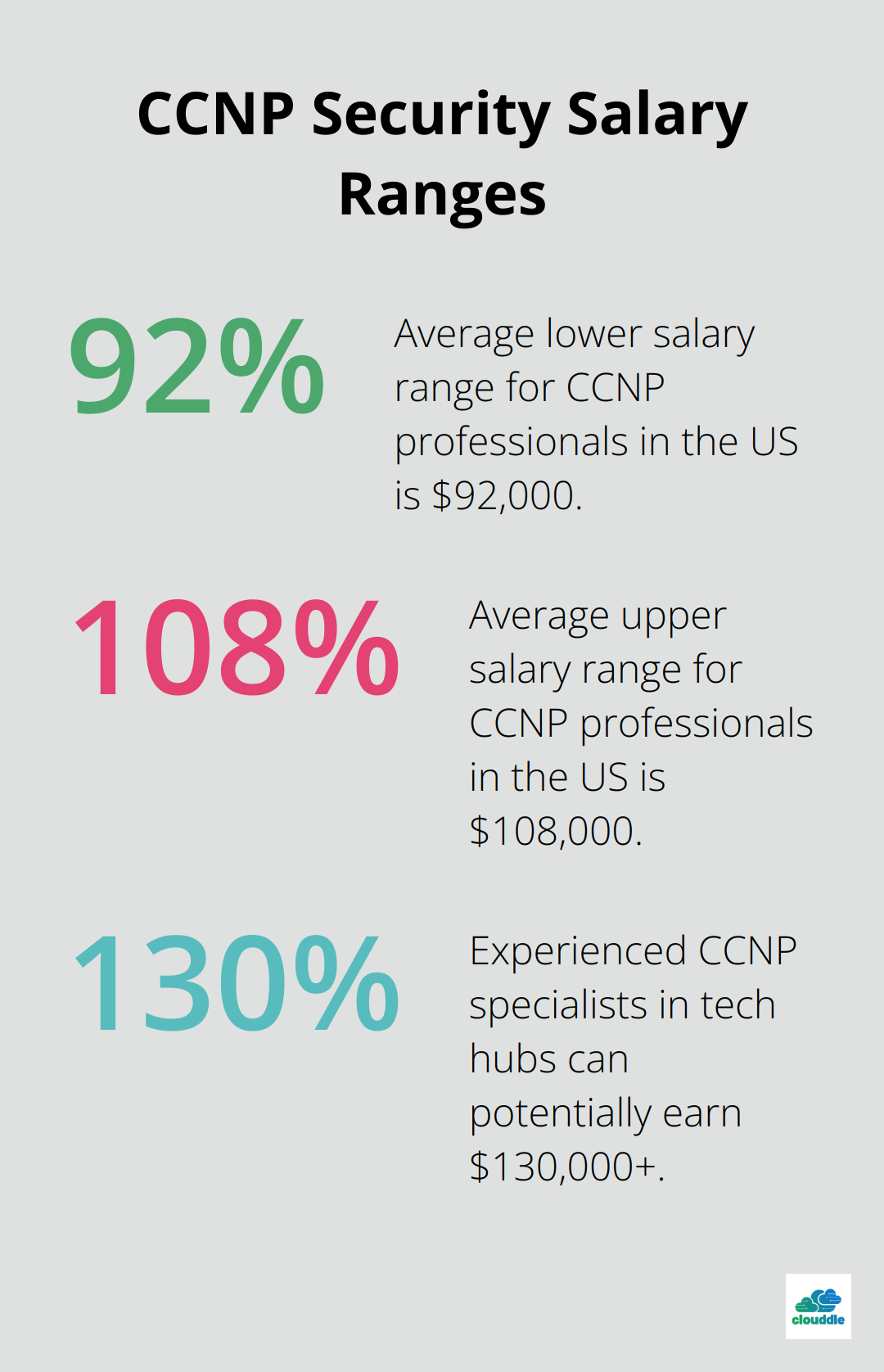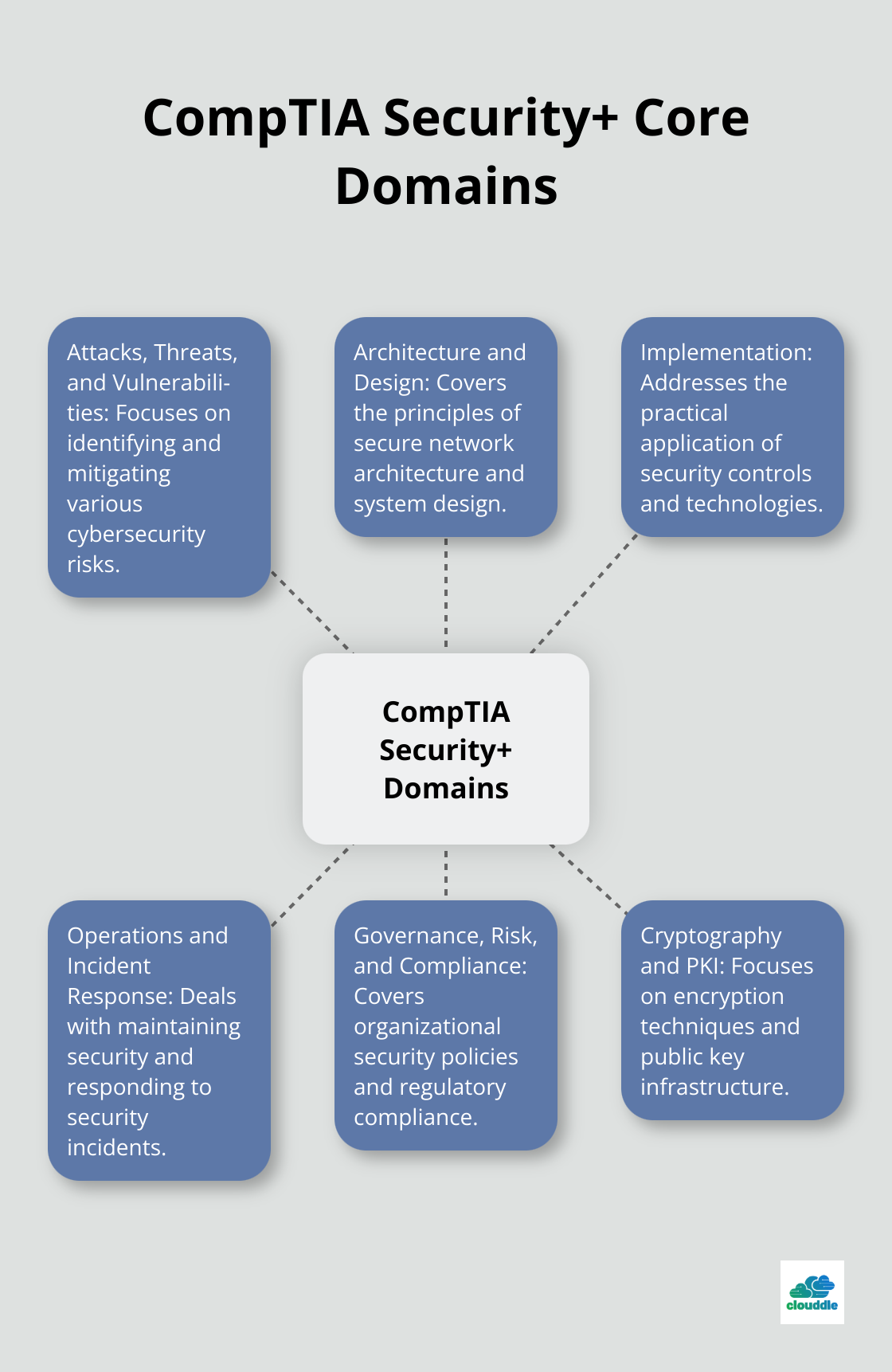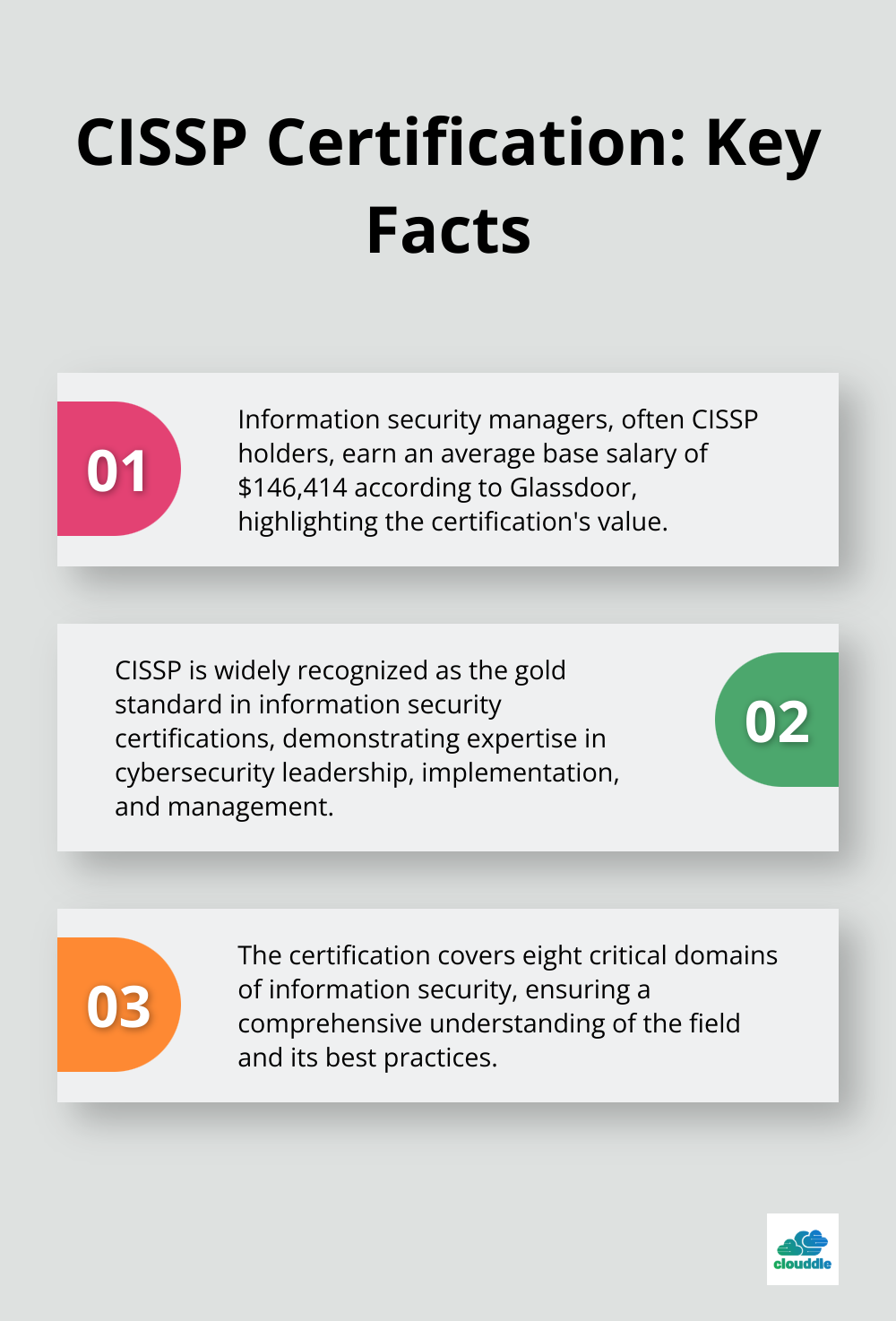At Clouddle, we understand the critical role of network security engineers in safeguarding digital infrastructures. The field of cybersecurity is constantly evolving, demanding professionals to stay ahead of emerging threats and technologies.
For those looking to advance their careers, pursuing the right Network Security Engineer certifications can make all the difference. In this post, we’ll explore the top certifications that can boost your expertise and open doors to exciting opportunities in the world of network security.
Cisco Certified Network Professional (CCNP) Security: A Gateway to Advanced Network Security
What is CCNP Security?
The Cisco Certified Network Professional (CCNP) Security certification stands as a highly respected credential in the network security field. It caters to professionals who aim to specialize in securing Cisco networks and advance their careers in cybersecurity.
Core Components and Skills
CCNP Security concentrates on four key areas: network security, secure access, VPN, and content security. Professionals who pursue this certification will acquire expertise in implementing and managing Cisco security technologies (including firewalls, intrusion prevention systems, and virtual private networks).
One of the most valuable aspects of CCNP Security is its focus on practical skills. Candidates must prove their ability to configure, troubleshoot, and maintain complex security solutions in real-world scenarios. This hands-on approach makes CCNP Security holders particularly attractive to employers who seek professionals ready to tackle immediate challenges.
Career Impact and Salary Potential
A CCNP Security certification can significantly enhance your career prospects. According to recent data, CCNP professionals earn between $92,000 to $108,000 on average in the US, with experienced specialists potentially reaching $130,000+ in tech hubs.

Many organizations (especially those heavily invested in Cisco infrastructure) actively seek CCNP Security certified professionals. Job roles that often require or prefer this certification include Network Security Engineer, Security Architect, and Cybersecurity Consultant.
Exam Structure and Preparation
The CCNP Security certification requires candidates to pass two exams: a core exam and a concentration exam. The core exam, 350-701 SCOR, covers security core technologies. For the concentration exam, candidates can select from several options based on their specific interests or career goals.
Preparation for these exams demands a significant time investment. Most successful candidates dedicate several months to study and practice. Cisco offers official training courses, but many professionals also utilize third-party resources like practice labs and study guides.
A key tip for exam success: gain hands-on experience with Cisco security technologies. Setting up a home lab or using virtual environments can provide invaluable practical experience. Additionally, participation in online forums or study groups can offer support and insights from others preparing for the same certification.
While CCNP Security is an excellent certification, it’s important to note its vendor-specific nature (Cisco). For professionals who work in multi-vendor environments, complementing CCNP Security with vendor-neutral certifications like CompTIA Security+ can provide a more rounded skill set. This combination of certifications can make you an even more attractive candidate in the competitive field of network security.
CompTIA Security+ Certification: A Solid Foundation for Network Security
Overview of CompTIA Security+
CompTIA Security+ validates the core skills required for a career in IT security and cybersecurity. This certification provides a foundation for professionals entering the cybersecurity field. It assesses the baseline skills necessary to perform core security functions and serves as a springboard for those who want to build a career in information security.
Core Security Concepts and Domains
The CompTIA Security+ exam covers six main domains:

- Attacks, Threats, and Vulnerabilities
- Architecture and Design
- Implementation
- Operations and Incident Response
- Governance, Risk, and Compliance
- Cryptography and PKI
These domains encompass a wide range of security concepts, from network security and access management to risk mitigation and disaster recovery. The exam includes performance-based questions that require candidates to solve real-world security problems, ensuring that certified professionals can apply their skills in actual work scenarios.
Career Impact and Salary Potential
For entry-level and mid-career professionals, Security+ can significantly boost career prospects. According to the Bureau of Labor Statistics (BLS), employment of information security analysts is projected to grow much faster than the average for all occupations. Many employers view Security+ as a minimum requirement for IT security positions, making it an excellent investment for career growth.
Security+ has earned recognition from the U.S. Department of Defense (DoD) and meets ISO 17024 standards. This recognition adds substantial weight to the certification, especially for those who seek government or contractor positions.
Exam Format and Structure
The Security+ exam (SY0-601) consists of a maximum of 90 questions, including multiple-choice and performance-based items, with a time limit of 90 minutes. Candidates must achieve a passing score of 750 on a scale of 100-900.
Effective Preparation Strategies
To prepare effectively for the Security+ exam, we recommend a multi-faceted approach:
- Use official CompTIA study materials for comprehensive coverage of exam objectives.
- Take practice exams to simulate the actual exam environment.
- Set up a home lab to practice configuring firewalls, implementing access controls, and other practical skills.
- Enroll in online courses that offer in-depth Security+ preparation.
- Join online forums or local meetups to discuss concepts and share study tips with peers.
While Security+ provides an excellent starting point, cybersecurity remains a rapidly evolving field. Professionals should view this certification as a foundation and continue to build upon it with specialized certifications and ongoing learning. This approach will help them stay current with emerging threats and technologies, paving the way for more advanced certifications like the Certified Information Systems Security Professional (CISSP).
CISSP: The Gold Standard in Information Security
Overview of CISSP Certification
The Certified Information Systems Security Professional (CISSP) certification stands as the pinnacle of achievement in the information security field. Offered by (ISC)², this credential demonstrates expertise in cybersecurity leadership, implementation & management.

Eight Domains of Expertise
CISSP covers eight critical domains of information security:
- Security and Risk Management
- Asset Security
- Security Architecture and Engineering
- Communication and Network Security
- Identity and Access Management (IAM)
- Security Assessment and Testing
- Security Operations
- Software Development Security
Each domain requires extensive knowledge and practical experience. For example, the Security and Risk Management domain tests understanding of security policy creation, regulatory compliance, and business continuity planning.
Career Opportunities and Salary Potential
CISSP holders often secure high-demand, high-paying positions. While specific CISSP salary data is limited, information security managers earn an average base salary of 6,414 according to Glassdoor.
Organizations (especially in finance, healthcare, and government sectors) actively seek CISSP-certified professionals for roles such as Chief Information Security Officer (CISO), Security Architect, and Information Assurance Manager.
Eligibility Requirements and Exam Structure
CISSP candidates must have at least five years of cumulative, paid work experience in two or more of the eight domains. A four-year college degree or an approved credential from the (ISC)² list can substitute for one year of experience.
The CISSP exam challenges candidates with 100-150 questions to complete in three hours. Its adaptive testing format adjusts difficulty based on the candidate’s performance, ensuring a comprehensive assessment of knowledge and skills.
Effective Preparation Strategies
Professionals can use these proven strategies to obtain their CISSP certification:
- Study the official (ISC)² CISSP study guide and practice tests.
- Participate in study groups or online forums to discuss complex concepts.
- Use flashcards for quick reviews of key terms and concepts.
- Watch video courses and webinars for different learning perspectives.
- Practice with hands-on labs to reinforce practical skills.
CISSP focuses on the application of security principles in real-world scenarios, not just memorization. Candidates should develop a holistic view of information security throughout their preparation.
While CISSP offers significant value, professionals must consider their career goals and current experience level before pursuing this advanced certification. Those earlier in their careers might find foundational certifications like CompTIA Security+ or CCNP Security more appropriate, building a strong base before tackling the CISSP.
Final Thoughts
Network security engineer certifications offer unique benefits for professionals at different career stages. CCNP Security provides advanced Cisco-specific expertise, CompTIA Security+ establishes a solid foundation, and CISSP opens doors to leadership roles. The dynamic nature of cybersecurity demands continuous learning to protect organizations from emerging threats effectively.
Professionals should consider their experience level, career goals, and industry-specific technologies when selecting a certification path. The time and financial investment for each certification, along with potential salary increases and career advancement opportunities, should factor into the decision-making process. Clouddle recognizes the importance of robust network security in today’s interconnected world.
Certifications prove most effective when combined with practical experience and ongoing skill development. Professionals should align each certification with their career objectives and the needs of target organizations. The right combination of credentials, skills, and dedication will position individuals to excel in the critical field of network security.


